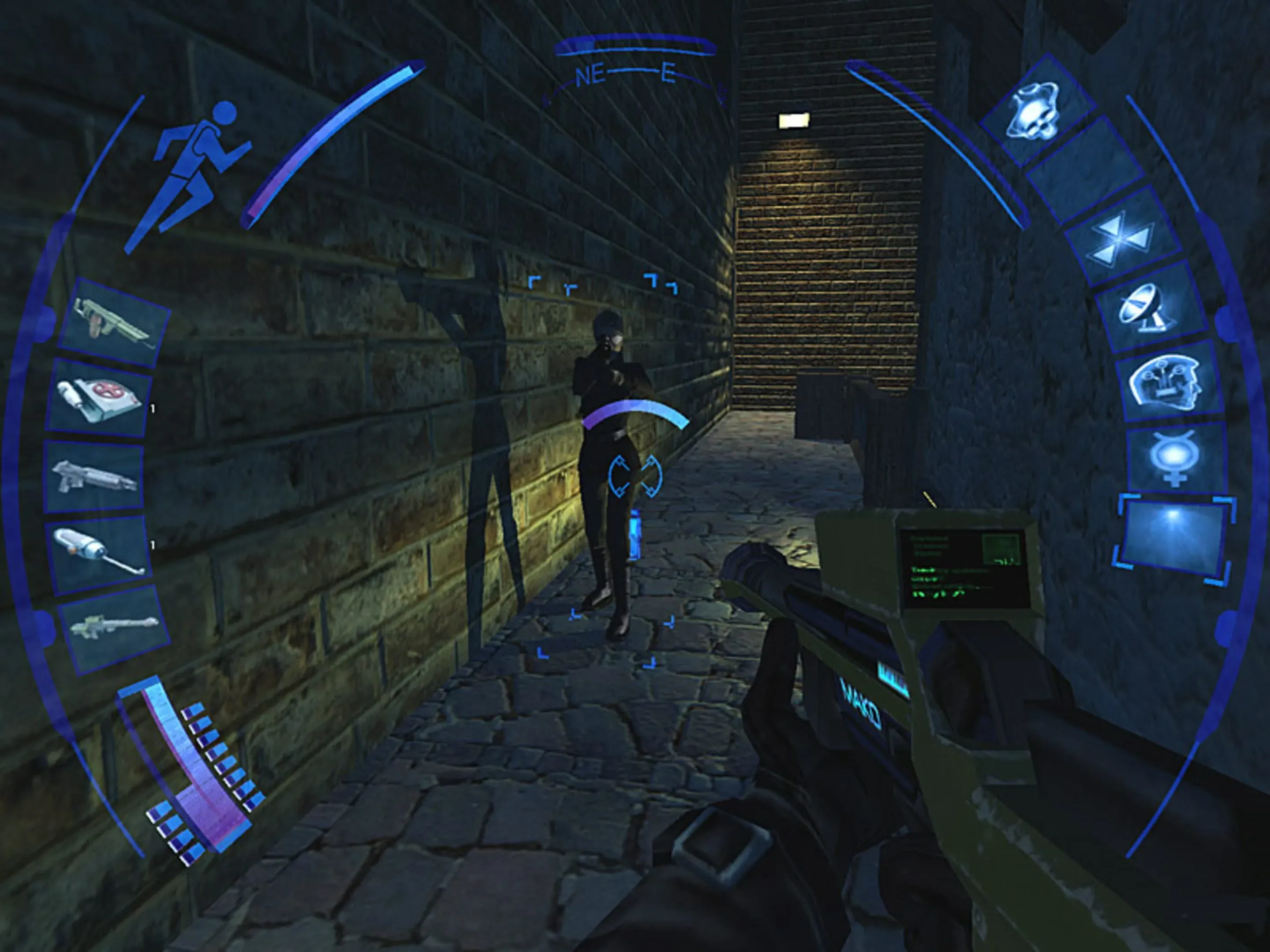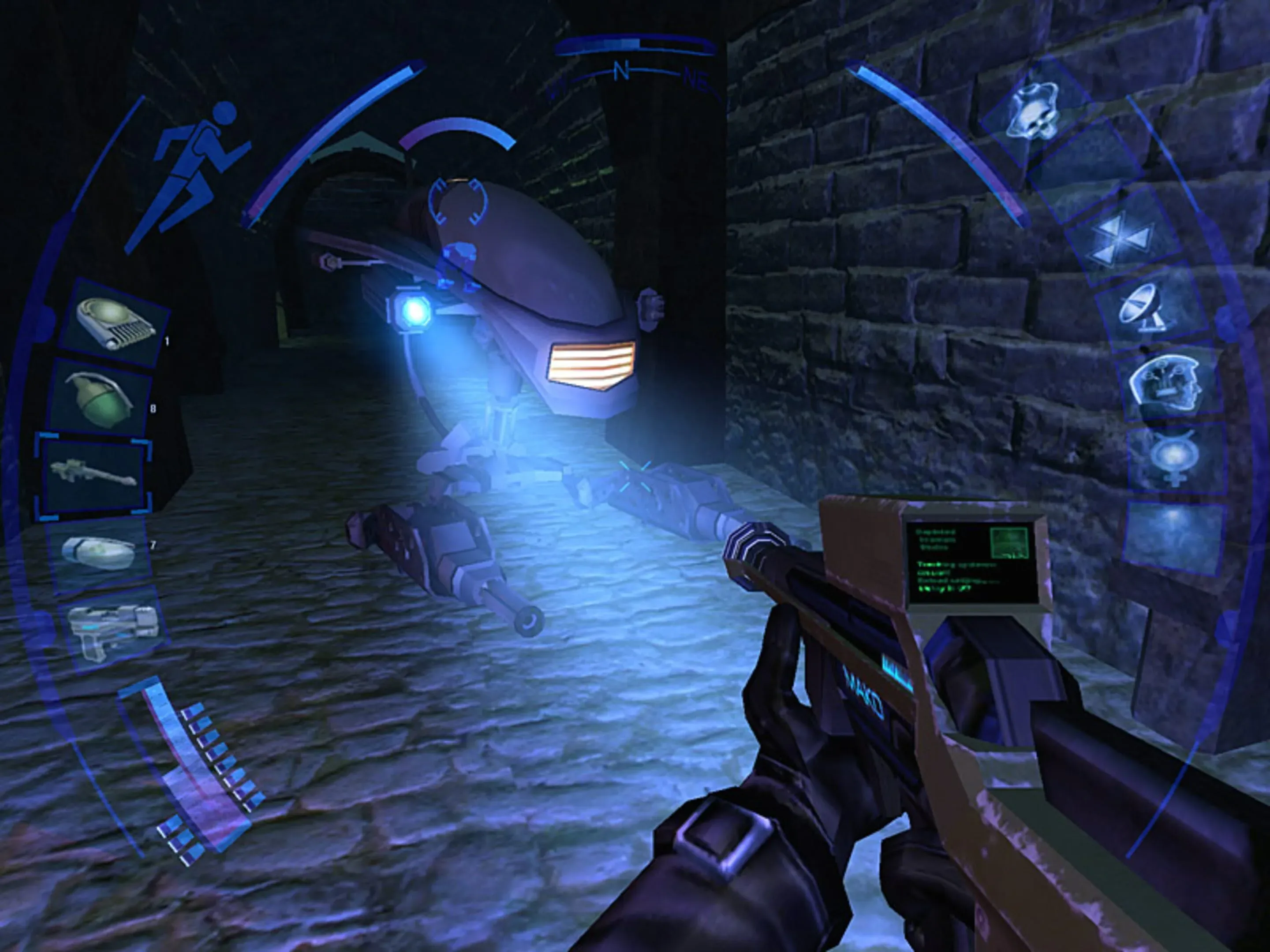The original Deus Ex is a masterpiece. Its deep stealth, intricate levels, memorable characters, and paranoia-laced storyline have sealed its place as one of the best video games of all time. But what about the sequel? You won't find 2003's Deus Ex: Invisible War in many people's top ten, and it has an unfortunate reputation as a high profile failure for developer Ion Storm. There's some truth there, but like the complex conspiracies at the heart of these games, it's not that simple. This is by no means a terrible game: it just had impossibly big shoes to fill.
Like the original Deus Ex, Invisible War is a first-person RPG with a focus on making choices—both in terms of how you play and guiding the narrative. You can upgrade protagonist Alex Denton, who can be male or female, with nano-augmentations to grant them superhuman powers and tailor them to your own play style. Ion Storm designed this anticipated sequel with the Xbox in mind, and the freedom it offered was way beyond other console games of the era—at the expense, much to PC players' annoyance, of some complexity.
There's no denying Invisible War is a simpler, more streamlined take on the Deus Ex formula than its predecessor. The RPG elements, particularly how deeply you could build and customise your character, were radically reduced. It was physically much smaller too: a trade-off to get it running on Xbox. Gone were the massive, sprawling levels of the first game, replaced by locations that, while atmospheric and occasionally quite pretty, felt disappointingly claustrophobic and boxy. In many ways it felt like a major step back, which a sequel never should.
The revamped ammunition system was famously controversial too. Pick up ammo in the game and it works in any weapon—from a pistol to a rocket launcher. There was some tortured explanation for this in the game's lore involving a substance called 'nano-mass' that could shape itself to fit any weapon. But this didn't change the fact that it was a flawed concept. The idea, Ion Storm said, was to make it so that you never ran out of ammo for your favourite gun. But the problem was that if you ever ran out of ammo, all your weapons would be empty.
I realise I've just spent several paragraphs dunking on a game I said wasn't as bad as people remember, so let's shift to what it does well. Invisible War is set in a bleak, broken dystopian future, 20 years after the adventures of JC Denton, where rival factions have very different ideas about how to fix the world. One of these is JC himself, who wants to bio-modify the world's population to, in his words, 'equalise' the human race. You can help out a fellow Denton and side with him, or throw your hat in with another faction. It's entirely up to you.
But choosing a faction, unlike so many other games, doesn't mean you're permanently locked to one path. You can switch allegiances at any time, and the story will do its best to accommodate you. Invisible War's narrative is a lot more open-ended than the original game, and you have a lot more impact on it at a granular level. At the end of the game, when the fate of the world is in your hands, there's no neat, easy choice either—as it should be. In most cases, when the credits roll, you feel like you might have made things worse.
Invisible War is a much better shooter too. In the first game I generally avoided firefights, not just because I preferred stealth, but because the FPS combat was so janky. Shooting people in the sequel feels much nicer, however, which makes a combat-focused playthrough not just more valid, but more entertaining too. The sandbox isn't nearly as deep as the original's, sadly. There aren't nearly as many tools, weapons, or high-tech spy toys to experiment with, and the smaller levels mean there are fewer opportunities for interesting shortcuts.
It's a shame Invisible War has such a poor reputation. It certainly didn't stack up to the first game, but that's a tall order for anyone—even Ion Storm. I don't think of it as a bad game: just a flawed one that was hamstrung by having to work on both powerful gaming PCs and the technically limited Xbox. However, despite decent reviews and over a million sales, Invisible War all but killed the series. It would be eight long years before it resurfaced with Eidos-Montréal's excellent Human Revolution. Alas, series creator Ion Storm never got to make another Deus Ex before it closed its doors for good in February, 2005.



